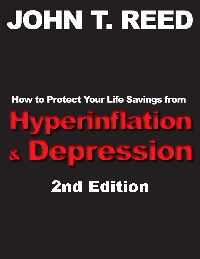AUD, CAD, NZD, bitcoin
Posted by John Reed on
Copyright 2013 John T. Reed
Six countries with historically-stable banking systems

In an article titled “O Canada!” Nancy Bush says there are six countries that have not experienced banking crises even as the rest of the world has. They are Canada, Australia, New Zealand, Singapore, Malta, and Hong Kong. This is from a paper by Columbia Professor Charles Calomiris titled “The Political Foundations of Scarce and Unstable Credit.”
http://www.frbatlanta.org/documents/news/conferences/13fmc_calomiris.pdf
The basic idea of it is these countries have a different political system—namely parliamentary systems with centrally directed economies which make it harder for politicians to use the central bank for political purposes. So both the theory and the empirical evidence indicates that these six countries simply do not have U.S.-style banking crises because they have a sufficiently different form of government.
I must add that Singapore’s debt-to-GDP ratio seems too high too me and is Greece or U.S. like. Malta is a Mediterranean island like Cyprus. I have never been to either but here is an extraordinary fact about the people of Malta from Wikipedia:
.
The George Cross was awarded to the island of Malta by King George VI of the United Kingdom in a letter dated 15 April 1942 to the island's Governor Lieutenant-General Sir William Dobbie, so as to "bear witness to the heroism and devotion of its people" during the great siege it underwent in the early parts of World War II. The George Cross is woven into the Flag of Malta and can be seen wherever the flag is flown.
.
Malta ain’t Cyprus, although both are euro countries so neither is a haven from hyperinflation risk at present. Hong Kong is owned and operated by the Communist Chinese. Enough said.
Australian dollar value versus the US dollar
A Financial Times article by Neil Hume on 5/29/13 says the Australian dollar is now “going head to head with the Syrian pound for the title of world’s worst performing currency.” It has a graph showing the AUD falling off a cliff. This is a journalist trying to be sensational with a mundane story.
.
The current AUD price in the graph is $.96 USD, which, if you look at the left side of the graph, is also what they were in July of 2012 when I bought mine.
The basic idea of the article is one I have seen again and again: China is hurting and Australia’s recent boom was largely from selling commodities to China. I don’t know if it’s true. It’s plausible. But I’m not worried about it.
The Reserve Bank of Australia seems likely to lower rates to stimulate the economy if and when they see a slowdown. I could do without that, but it is not “printing” massive amounts of new AUD like the US Fed has been doing for years.
.
I go back to my two rules for criticizing my foreign currency recommendations: 1. You must prove the AUD, in this case, will hyperinflate more than the USD. There is no indication of hyperinflation at all in the AUD. If they somehow wanted to hyperinflate, they would have a long way to go from their current debt-to-GDP ratio of 20.7% to America’s 108%.
2. You have to tell me what foreign currency to replace it with.
.
Hume is not even talking about using the AUD as hyperinflation protection. He is just trying to write a sensational story about movements in the value of the AUD that are not important in a hyperinflation discussion.
.
Most telling is the “lie factor” of his graph. Edward Tufte is the guru of honest, ethical graphs. One of his rules is that the lower left corner must be zero. Mr. Hume’s lower left corner is $.96. By using that lower left, Hume makes a 10% fall looks like a 100% fall giving the graph what Tufte would call a “lie factor” of 100% ÷ 10% = 10.
Bitcoin
The world’s biggest (80% market share) bitcoin exchange says they are going to “beef up” identification of users. This is because the U.S. government is cracking down on the use of currencies not backed by a central bank because of money laundering. This will cost Mt. Gox the paranoid kook segment of the bitcoin market. And just this report is not enough to get my approval, but it is a step in the right direction.
I welcome alternatives to the various political currencies that are risking hyperinflation, like the USD and the EUR. I also welcome ways to move money that might get around capital controls. But someone or some creditworthy entity has to take responsibility for the integrity of the alternative currency before I use or endorse it. Until then it is a pig in a poke and the law of economics against not buying a pig in a poke is as undisputed as the law of gravity.
Share this post
0 comment
